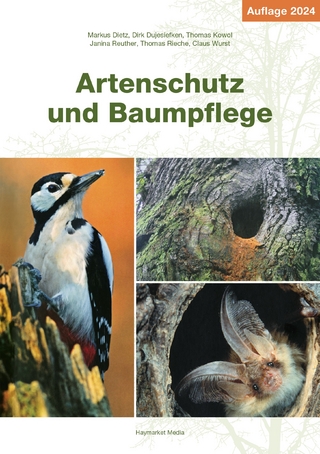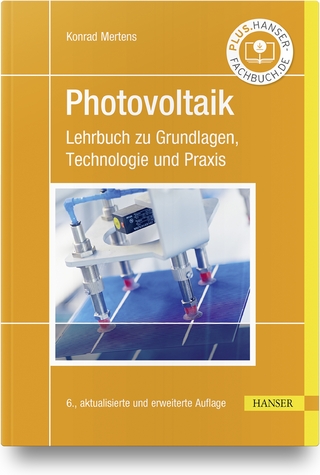
Biorefinery of Industrial Effluents for a Sustainable Circular Economy
Elsevier - Health Sciences Division (Verlag)
978-0-443-21801-9 (ISBN)
- Noch nicht erschienen (ca. Oktober 2024)
- Versandkostenfrei innerhalb Deutschlands
- Auch auf Rechnung
- Verfügbarkeit in der Filiale vor Ort prüfen
- Artikel merken
Dr. Mu. Naushad is working as a full professor in the Department of Chemistry, College of Science at King Saud University, Riyadh, Saudi Arabia. His research interests include wastewater treatment, adsorption, ion exchange, bioremediation, and photodegradation. Dr. Naushad is the author and coauthor of more than 500 refereed journal publications and several books, book chapters, and US patents. Dr. Shamsul Rahman Mohamed Kutty is working as a professor in the Civil Engineering Department at the Universiti Teknologi PETRONAS (UTP), Malaysia. He received his PhD degree from the University of Memphis, TN, United States. He has worked with UTP for more than 20 years. Throughout the years, he has been involved in research and consultancies related to environmental management systems, water quality, wastewater treatment, and solid waste management for biogas generation. Dr. Md. Sohrab Hossain is currently working as a senior lecturer in the Department of Fundamental and Applied Sciences at the Universiti Teknologi PETRONAS, Malaysia. Dr. Sohrab obtained his PhD degree in environmental technology from the Universiti Sains Malaysia. He has expertise in supercritical fluid technology, hazardous waste management, wastewater treatment, and waste to biofuel production. Dr. Abdullahi Haruna Birniwa is working as a senior lecturer in the Department of Chemistry at Sule Lamido University, Kafin Hausa, Jigawa State of Nigeria. He[CE11] holds PhD degree in polymer chemistry from Bayero University, Kano and the University Malaya in Malaysia in 2019, MSc degree in color chemistry from Bayero University, Kano in 2013, and his BSc degree in applied chemistry from Usmanu Danfodiyo University, Sokoto in 2008. [CE11]Please check the edits made in the sentence “He holds PhD degree in polymer chemistry …. for correctness and amend as necessary. Dr. Ahmad Hussaini Jagaba is a postdoctoral fellow at the Interdisciplinary Research Centre for Membranes and Water Security, King Fahd University of Petroleum and Minerals, Saudi Arabia. He is also a lecturer in the Department of Civil Engineering, ATBU Bauchi, Nigeria. He obtained his BEng degree from ATBU Bauchi in 2011, MEng degree in civil engineering from UTHM in 2016, and PhD degree in civil engineering from UTP, Malaysia. He has authored and coauthored several articles in environmental sustainability with emphasis on physical/chemical and biological wastewater treatment, bioremediation, biomass conversion, and solid waste management.
1. Sources, generation, and properties of industrial effluents for utilization in a biorefinery 2. Environmental impact and management of industrial effluents 3. Cleaner and sustainable circular economy approaches for bio-based product recovery from industrial effluents in a biorefinery 4. Agro-industrial effluents: generation, characteristics, impacts, and applications for bio-based product recovery in a biorefinery 5. Food industrial effluents: generation, characteristics, impacts and applications for bio-based product recovery in a biorefinery 6. Algae-based industrial effluents: generation, characteristics, impacts and applications for bio-based product recovery in a biorefinery 7. Municipal effluents: generation, characteristics, impacts, and applications for bio-based product recovery in a biorefinery 8. Aquaculture industrial effluents: Generation, characteristics, impacts, and applications for bio-based product recovery in a biorefinery 9. Palm oil mill effluents: generation, characteristics, impacts and applications for bio-based product recovery in a biorefinery 10. Recent trends in pulp and paper effluents based biorefinery for bioenergy and value-added products formation 11. Sugarcane industry effluents: generation, characteristics, impacts and applications for bio-based product recovery in a biorefinery 12. Sources, properties, and sustainable valorization technologies of agro-industrial effluents for bioproducts recovery in a biorefinery 13. Microalgal and cyanobacterial strains for nutrients recovery and bio-based products synthesis from agro-industrial effluent 14. Physico-chemical processes for industrial effluents treatment in a biorefinery 15. Role of membrane science in the sustainable development of an algal based biorefinery for industrial effluents treatment 16. Biorefinery waste-based nanocomposites for industrial effluents treatment using physicochemical techniques 17. Biological processes for industrial effluent treatment in a biorefinery 18. Recent advances in the sustainable application of biomass-based cellulose nanocrystals for industrial effluents treatment and resource recovery in biorefineries- Modelling and Optimization 19. Recent progress in the application of hybrid processes for industrial effluents treatment in biorefineries 20. Techno-economic and life-cycle assessment of industrial effluents treatment in biorefineries 21. Valorization glycerol produced as a by-product in the biodiesel industry: An insight into technical and economic studies 22. Ecological impact assessment of hazardous components of industrial effluents and their sustainable management obeying the principle of circular economy: An in-depth view 23. Current policy and regulatory challenges, opportunities, and future perspectives of industrial effluents treatment in biorefineries 24. Native microalgae consortia: a potential contribution to a biorefinery based on liquid circular inputs 25. Comparative Study of Industrial Effluents for Biorefinery Conversion
| Erscheint lt. Verlag | 1.10.2024 |
|---|---|
| Verlagsort | Philadelphia |
| Sprache | englisch |
| Maße | 152 x 229 mm |
| Themenwelt | Naturwissenschaften ► Biologie ► Ökologie / Naturschutz |
| Naturwissenschaften ► Chemie ► Technische Chemie | |
| Technik ► Umwelttechnik / Biotechnologie | |
| ISBN-10 | 0-443-21801-3 / 0443218013 |
| ISBN-13 | 978-0-443-21801-9 / 9780443218019 |
| Zustand | Neuware |
| Haben Sie eine Frage zum Produkt? |
aus dem Bereich


